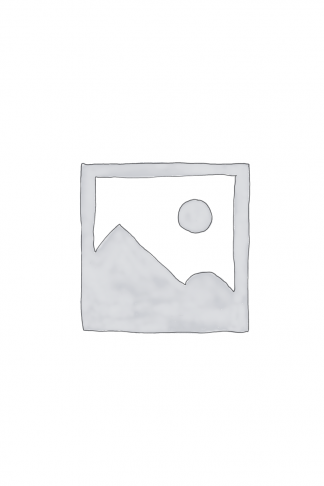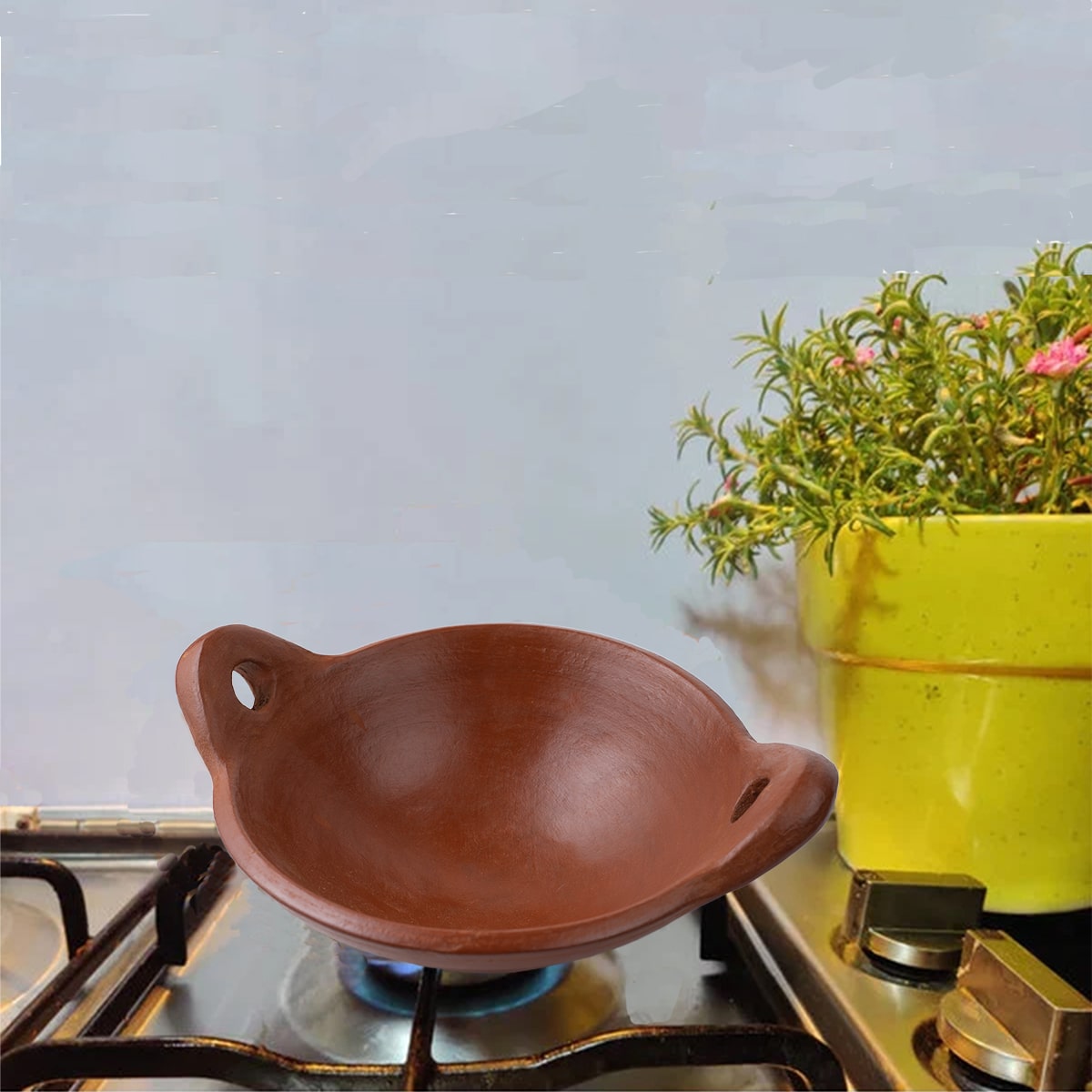Showing 13–24 of 123 results
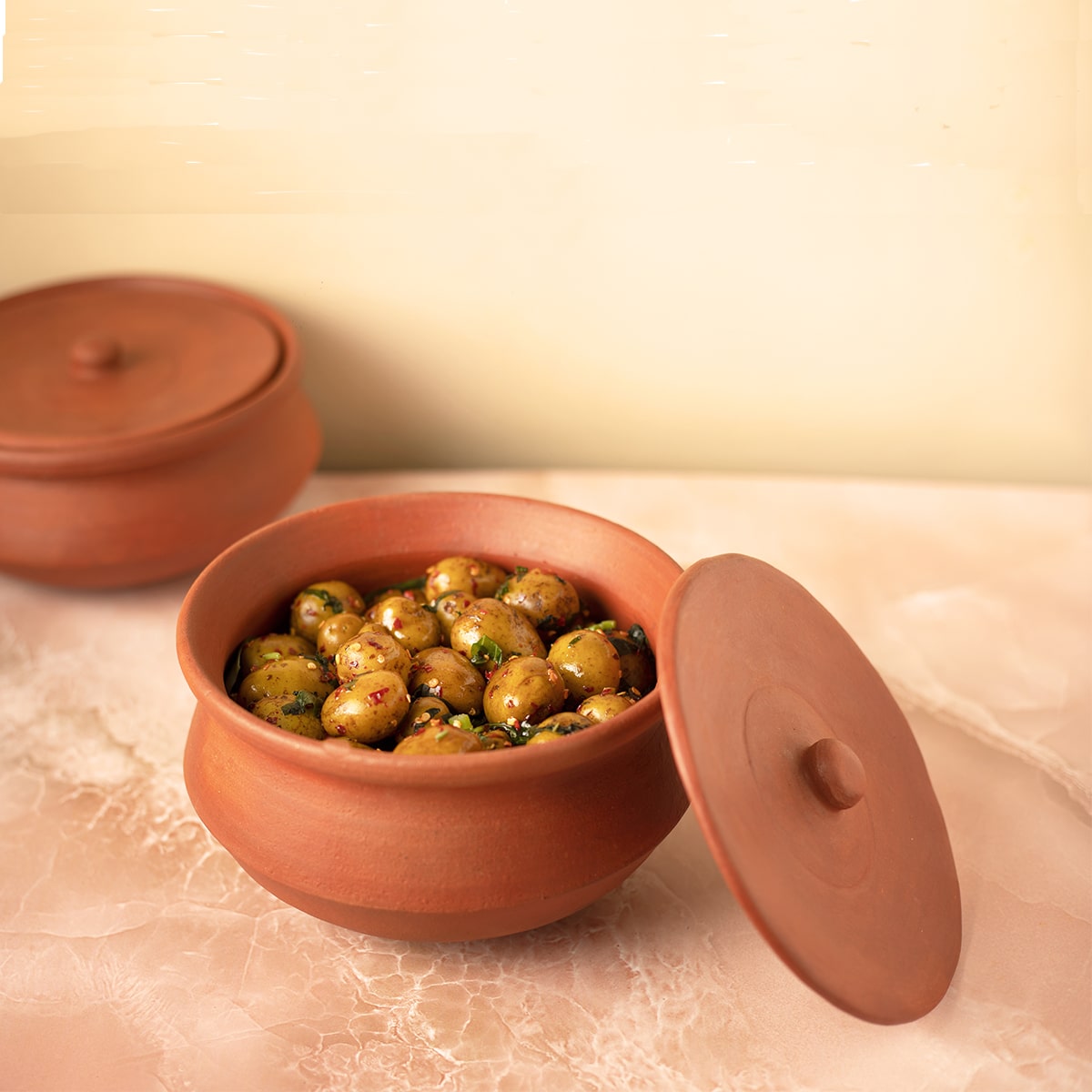
Bhavam Terracotta Cook and Serve ware
$20.00
$25.00
The most healthy way to cook curry is in an earthen pot . We used to have earthen pots of various shapes and sizes to cook different types of food. Now we have adopted those cookware forms and added some finesse into it to present your dish on table in the same pot. Adorn your table with these rustic looking terracotta pot. Keep the lid on, to not lose the aroma of the food until you have it.
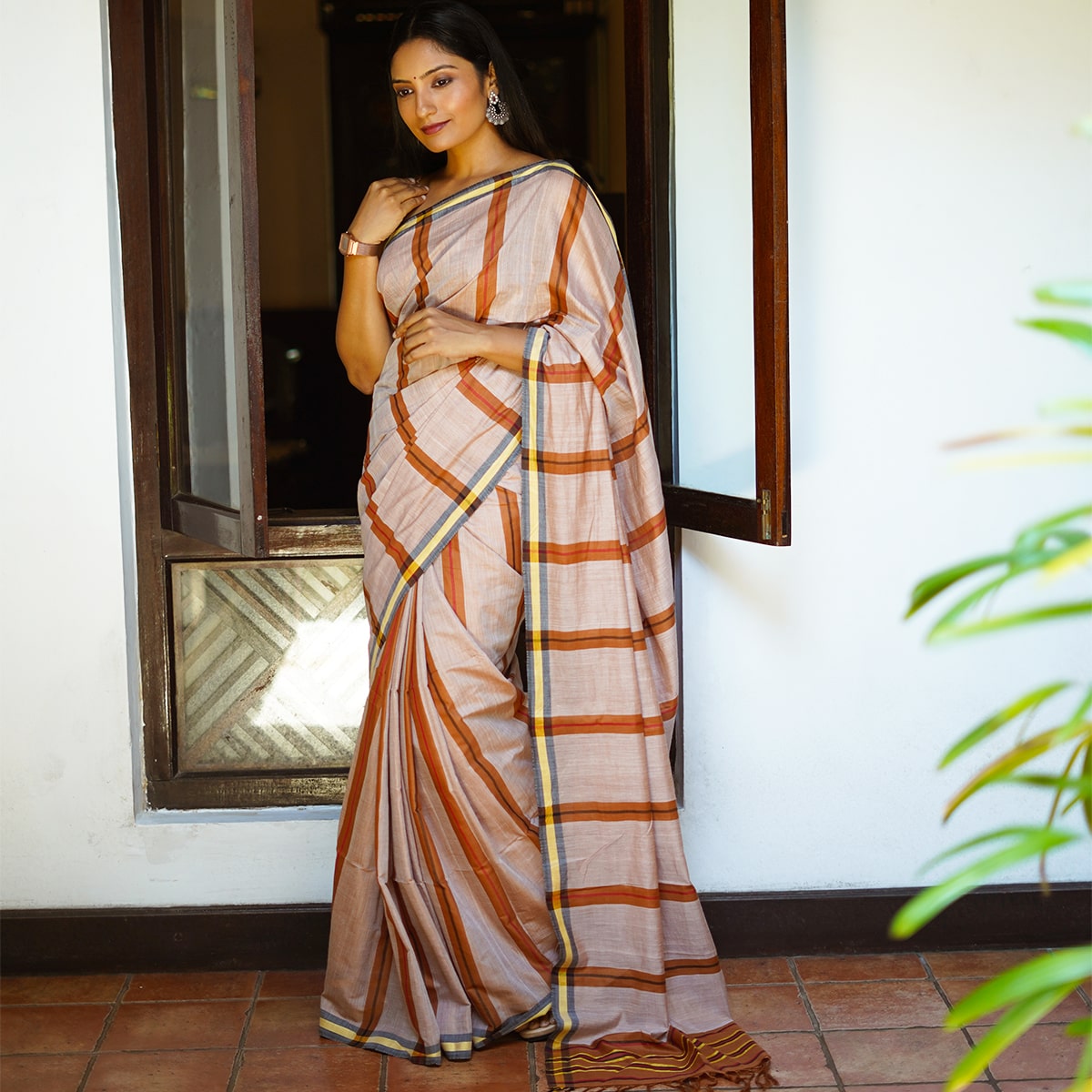
Bhoomika Saree
$60.00
$60.00
This saree with its earthy tones is 'bhoomika', which means earthy. Soft cotton texture gives a comfortable feeling when you wear it. Design of the saree has inspiration from a common bird around us, "chemboth" (Greater Coucal or Crow pheasant)
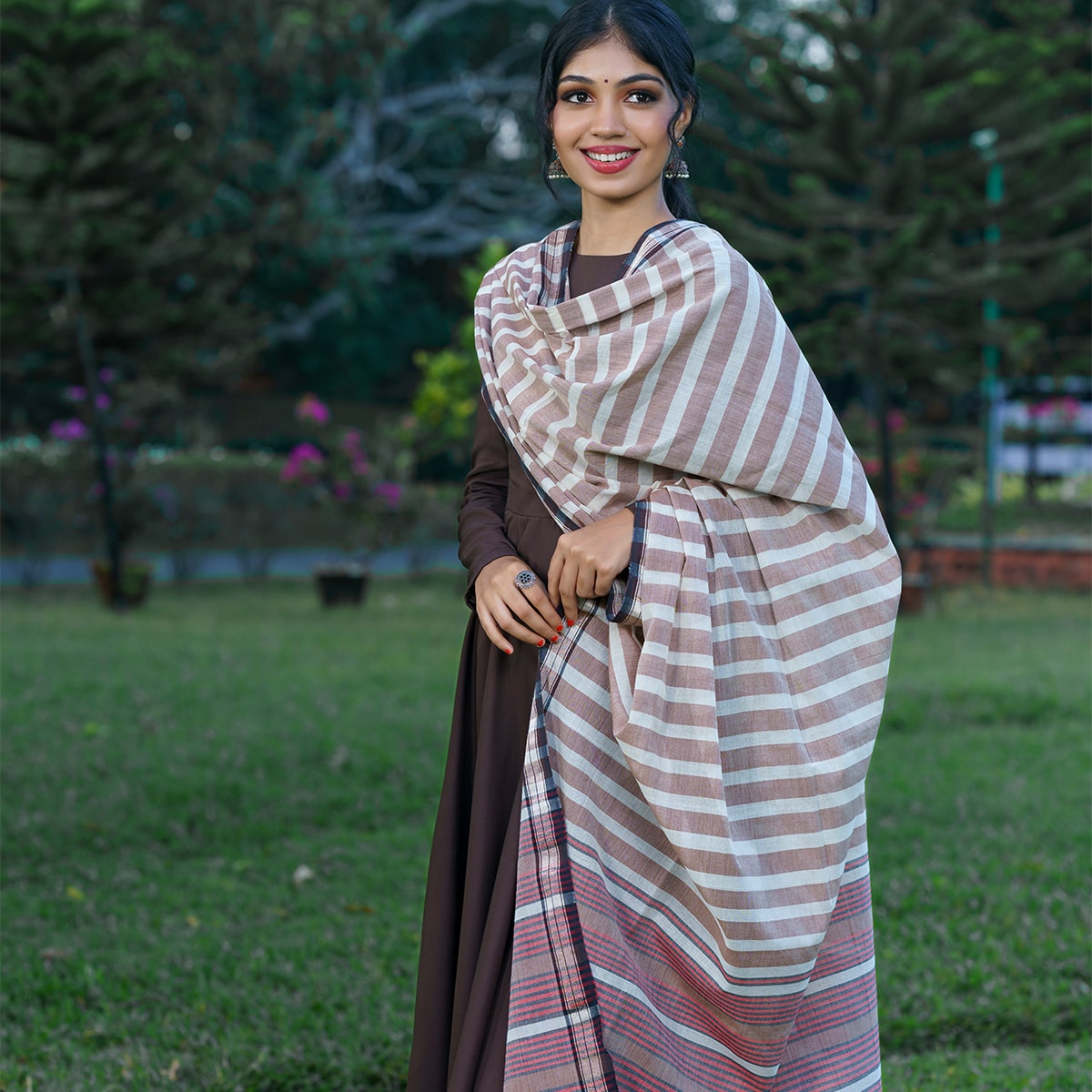
Bulbul Dupatta
$25.00
$25.00
Story of Weaving: The handloom fabric is a type of fabric that is woven using hand operated looms. Two sets of interlacing yarns, the warp (length) and weft (width), are woven on a loom hand-operated by weavers. These looms do not use electricity. Human handling lends the fabrics a unique feel and renders the fabrics more value. The resultant fabric is softer, more durable and much more comfortable than machine-made fabrics. Handloom cotton is more breathable and thus feels lighter in summers and provides more insulation in winters. The dyeing process also becomes easier for handloom cotton as the colour penetration is substantially more. Hues are absorbed better thus look resplendent on handloom cotton. The art of hand weaving is labour intensive and takes a longer time. But, the beauty it adds to the fabric is priceless. Choosing handloom cotton supports the rich weaving heritage of India and lets the weavers carry on the precious art-form to the future generations as well.
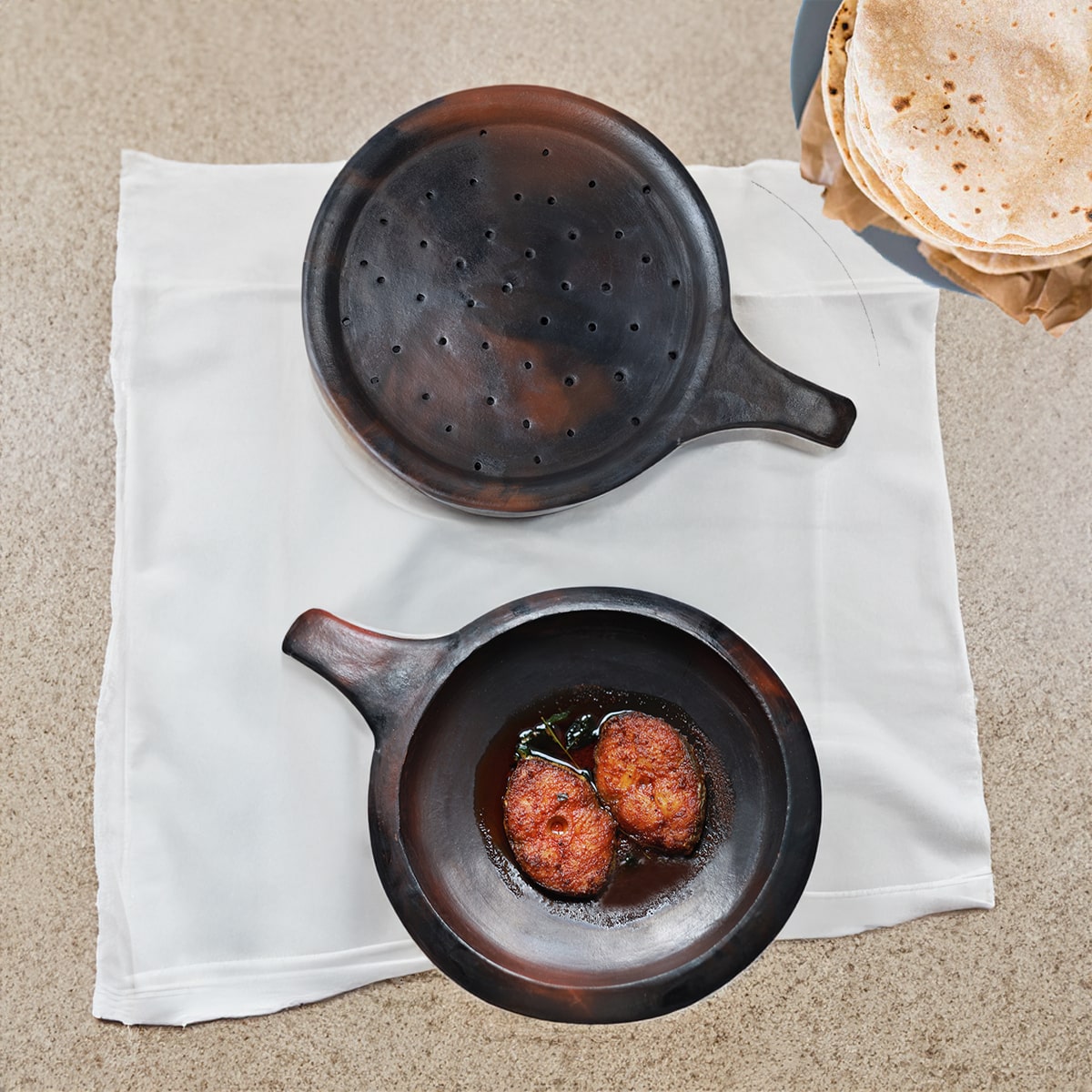
Bundle of Pans - Phulka Pan and Frying Pan
$40.00
$50.00
A Kitchenware bonanza! Have perfect fluffy Phulkas and get those side dishes fried, in a healthy way!
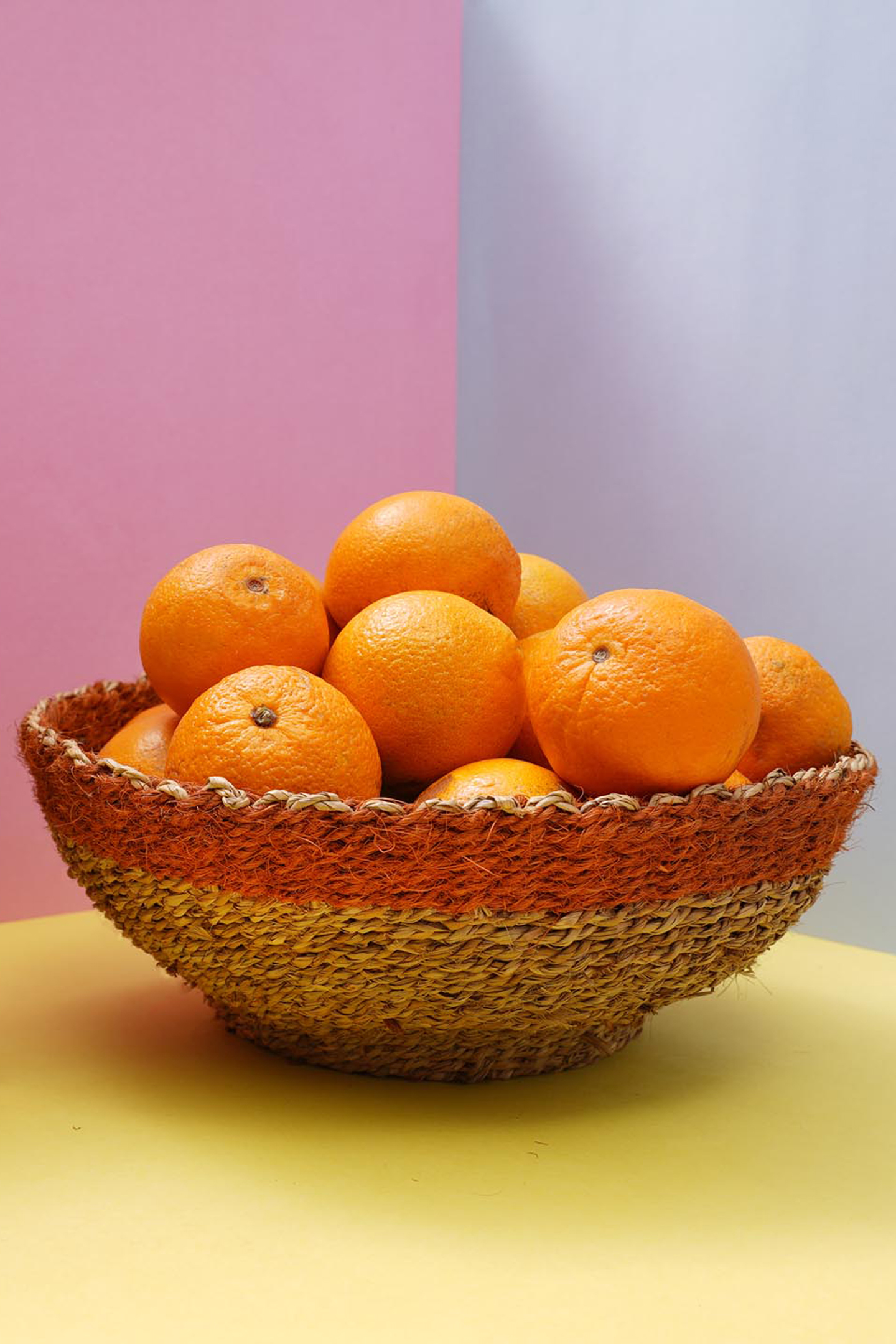
Chakiri Fruit Basket
$12.00
In Kerala, the land of coconut trees, we find a way to create utility from every part of that tree. For decades, making coir by processing coconut fibre has been a source of livelihood for a significant share of the population in this region. Coconut fibre is processed into strands and these strands are twisted together to form coir. Later coir is dyed with beautiful colours. Our artisans in Alleppey district of Kerala use this coir to make baskets. A basket completely made of natural materials, symbolising the spirit of Kerala.
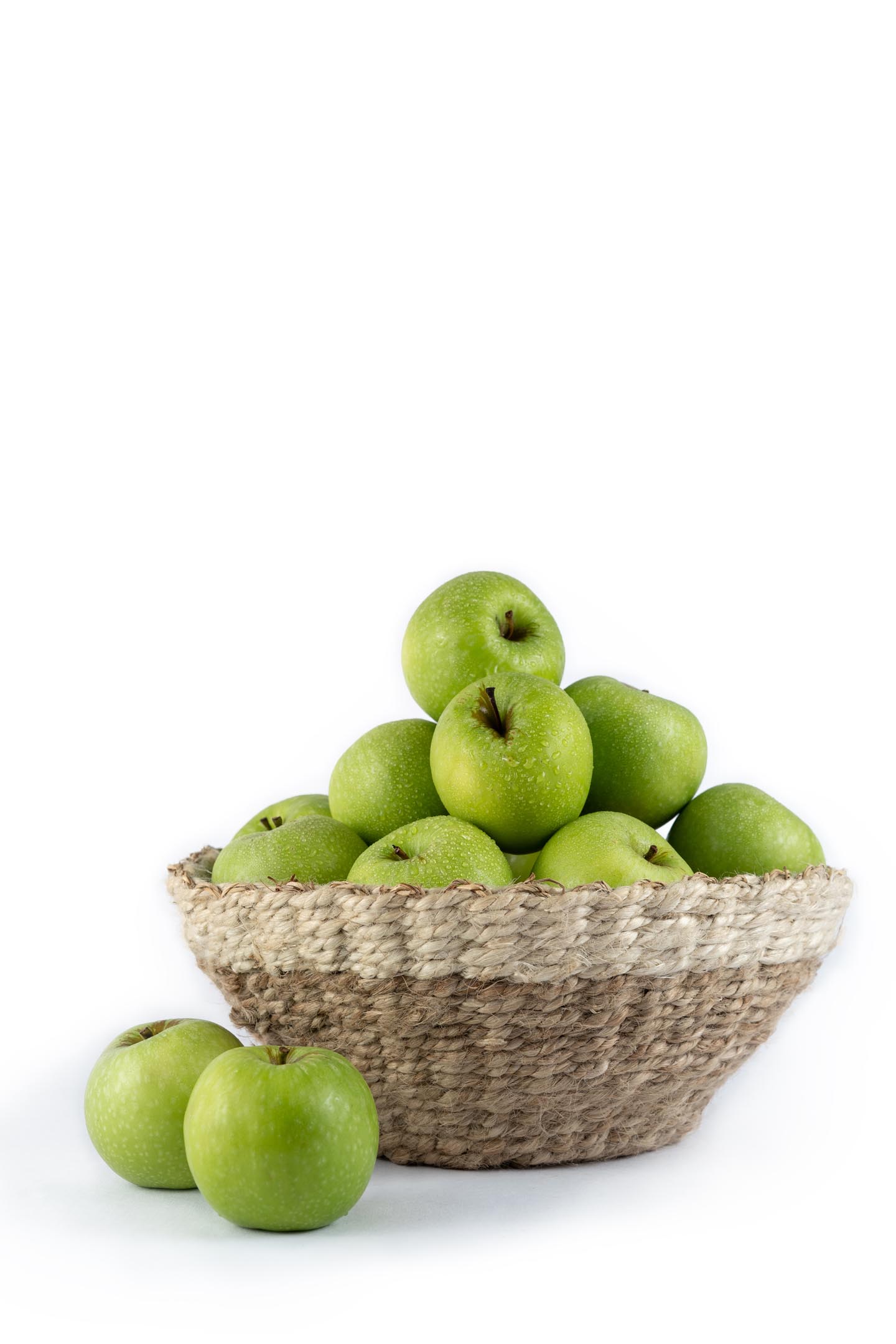
Chanam Fruit Basket
$12.00
Jute is the material to go for if you are looking for a soft and durable natural material for baskets and bags. Here is a piece crafted by our artisans from Alleppey district in Kerala.
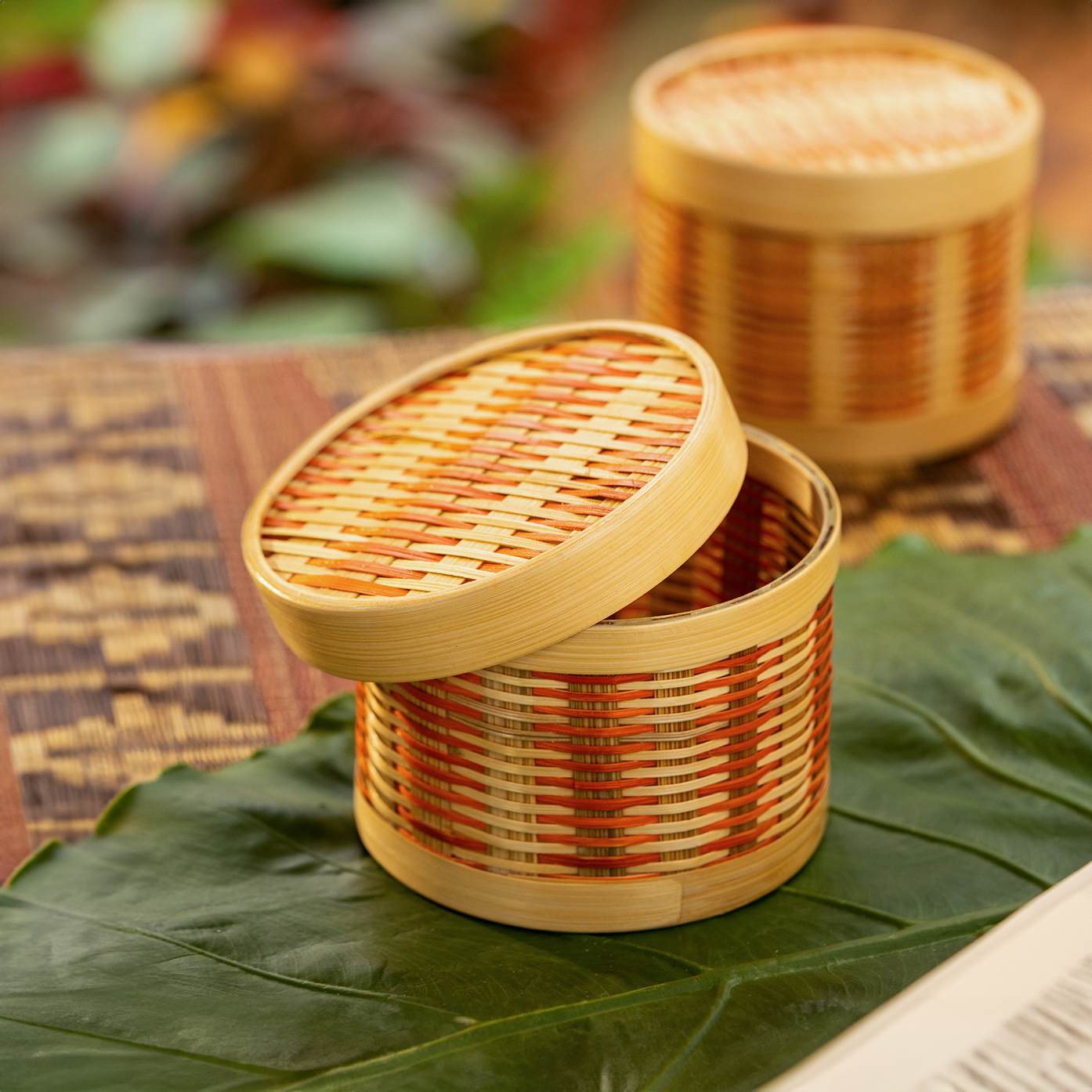
Charutha Bamboo Box
$10.00
$12.00
Woven to perfection by our expert bamboo weaver, using the locally available bamboo, these are ideal as a gift box or storage box Cutting bamboo from the forest to the basket on your table, this product has gone through hours of careful work by our artisans.
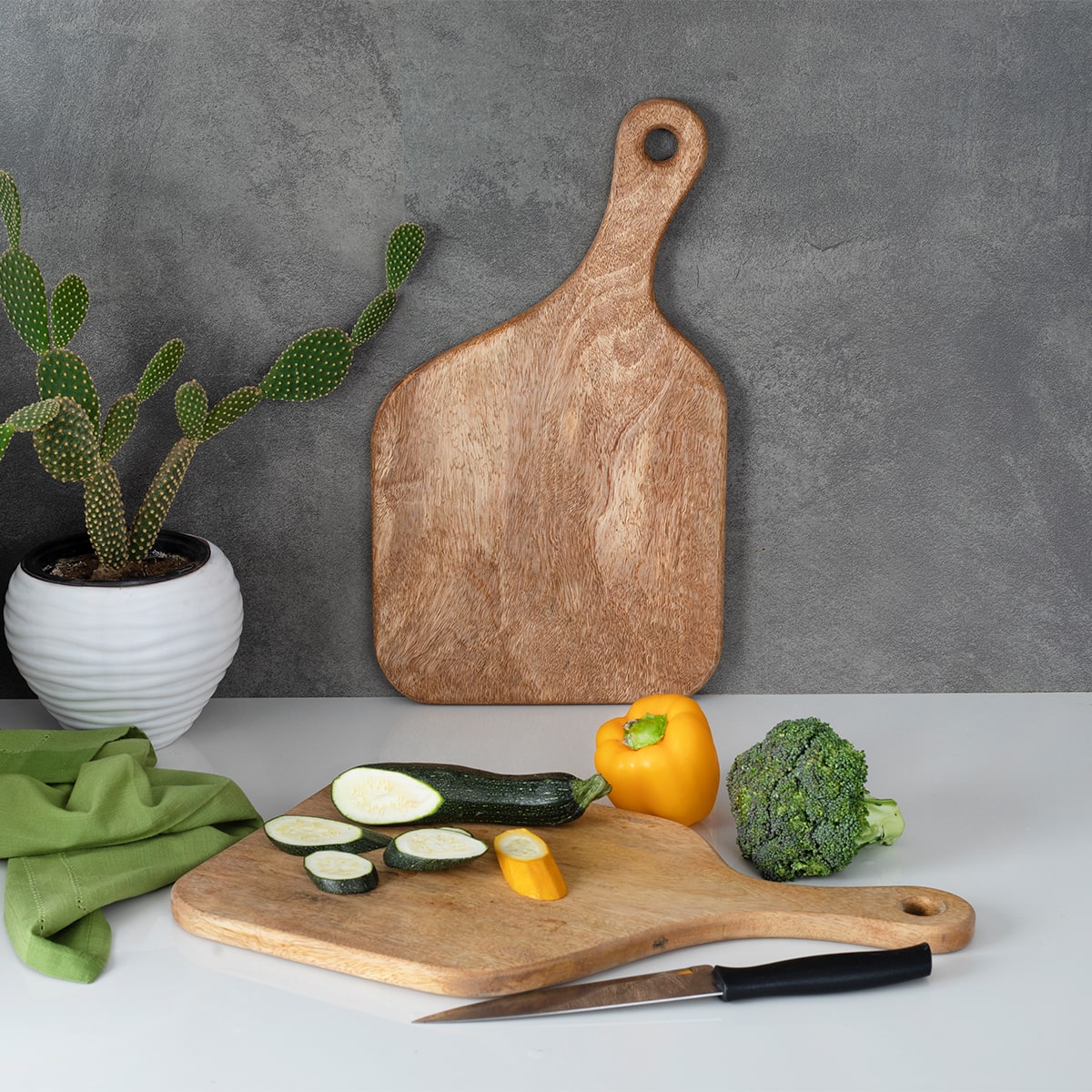
Chathuram Wooden Cutting Board
$25.00
Wood Craft: We use good quality Mango wood and teak to make the products. Traditional carpenters use hand operated tools to carve the products out of large wood logs. It is hand finished to make it smooth
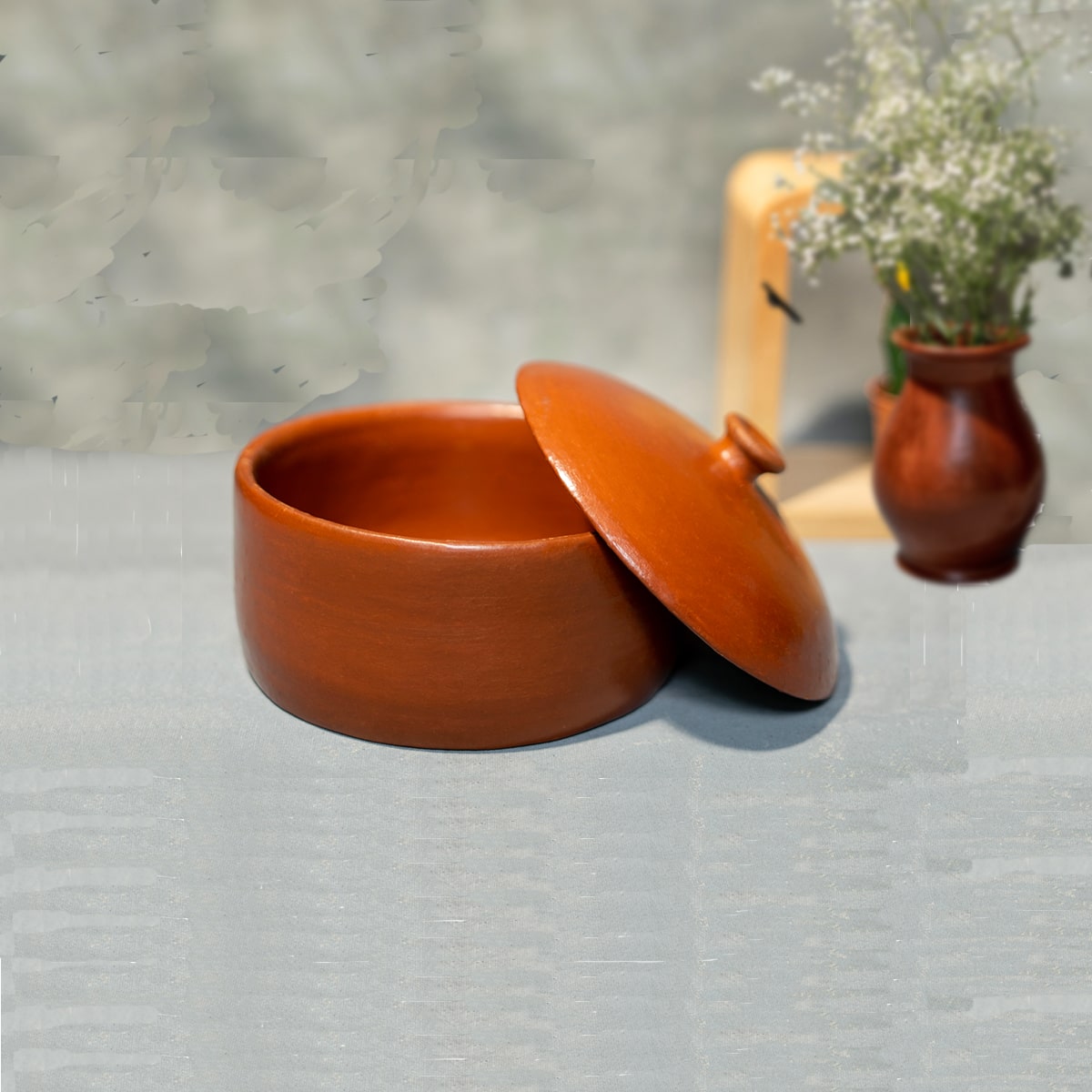
Chatti Curry Pots
$950.00
$15.00
This is a serve ware, which can be used to serve your favourite dishes. We are bringing the terracotta beauty to the dining table through this Chatti Curry Pots.
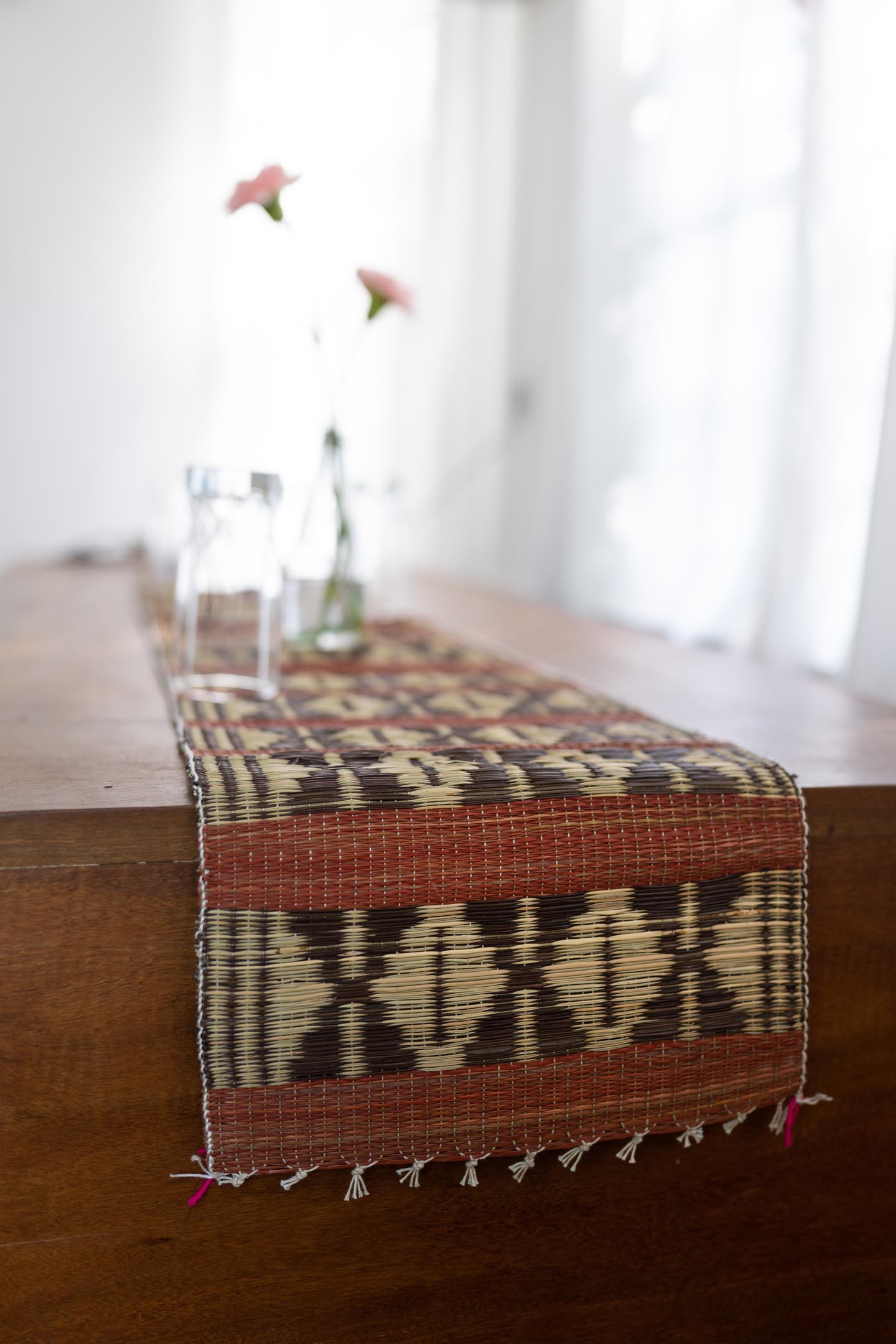
Chayilyam Runner
$35.00
We always look for ways to be environment friendly and use natural materials as much as possible. With this spirit, we experimented with vegetable dyes. And here we are, with a mat dyed using natural colours extracted from plants. Though it takes an additional three days of processing, we feel it is worth the effort. We are confident, very soon, you will feel the same way. Chayilyam is the material used to give that mystic deep orange colour to the face painting in Theyyam and Kathakali art forms. Here, vegetable dyes are used to recreate that orange magic. Story of Cora Grass and Mat weaving: Cora Grass is found along river banks and in marshy lands. It can grow up to a height of two meters. Family members of mat weavers collect these cora grass and bring it for processing. They cut each grass stem into four strands and remove the soft material at the centre. Before further processing, the grass is dried under the sun, till it develops a beige colour naturally. The grass is then dyed using different colouring materials and processes to match artists imagination. Sometimes, the colouring process takes days, depending on the shade of colour desired. The handcrafted mats are woven using hand operated looms. A set of white yarns as the warp (length) and thin strands of cora grass as weft (width), are woven on a loom hand-operated by weavers. These looms do not use electricity. Human handling lends the mat a unique feel and more value. The resultant mat is softer, more durable and much more comfortable than machine-made mats. The cora grass strands are compacted by hand by the weavers, ensuring sturdiness to the mat. The art of hand weaving is labour intensive and takes a longer time. But, the beauty and quality it adds to the mat is priceless. Choosing handwoven mats supports the rich weaving heritage of Killimangalam and lets the weavers carry on the precious art-form to the future generations as well.
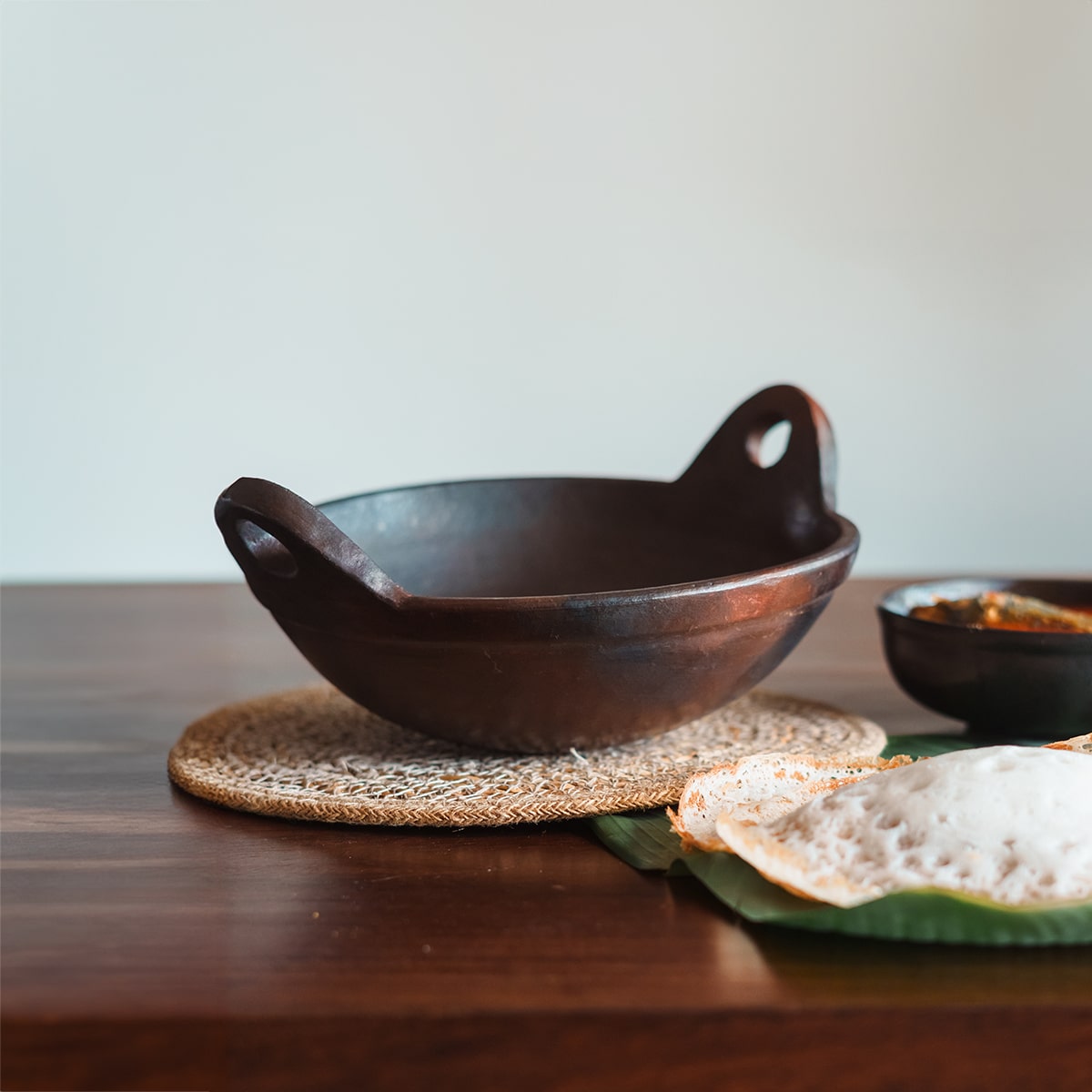
Cheenachatti (Black) - 1.2 L Capacity, Terracotta Cook and Serve ware
$15.00
$20.00
Cook up some soft appam (a South Indian delicacy) or prepare your favourite dish in a healthy way, using this uniquely crafted pot. Take it directly to your dining table and serve the dish from this beautiful black piece The black tone of the product is achieved through processing in the kiln. It is a blackening process done on the natural terracotta coloured product.
Showing 13–24 of 123 results
Related products
View all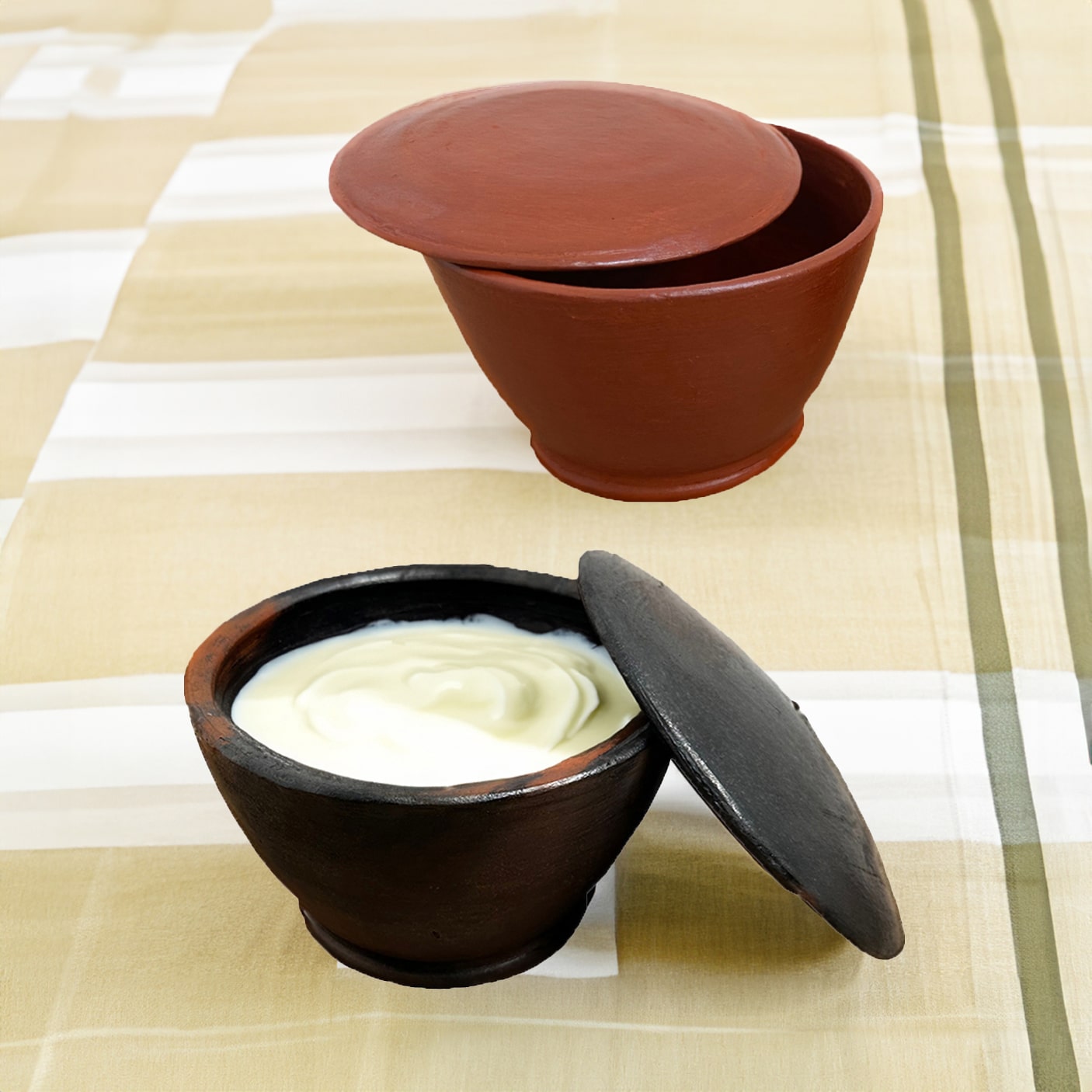
Kalam Curd Setter (0.6 to 1 Litre capacity)
Our Mothers teach us family recipes. But we often fail to recreate that magic in our food. For sure, one reason is the way we cook, our affinity for short cuts. At Graamyam, we are making a small effort to help you to bring back your memories of food, as prepared by your mother. Here is a Kalam curd setter, to make home curd with a whole new accent, with the earthy flavour of the clay pot. Curd set in a steel container can never match the flavour and richness of curd set in a terracotta vessel. Clay being porous can absorb water; therefore, when you make yoghurt in clay pots, the clay absorbs the excess water, and the yoghurt is much thicker and creamier. No other containers can match this characteristic of terracotta. Terracotta curd setters are 100% food safe as per international standards. Clay helps keep the culture of the curd at the right temperature for it to grow successfully. These curd setters help in cutting down the sourness of curd as it is made of clay which is alkaline in nature. It can balance out the acidity of the yoghurt to a large extent. Choose from the different variations available For the black variation, the black tone of the product is achieved through processing in the kiln. It is a blackening process done on the natural terracotta coloured product.
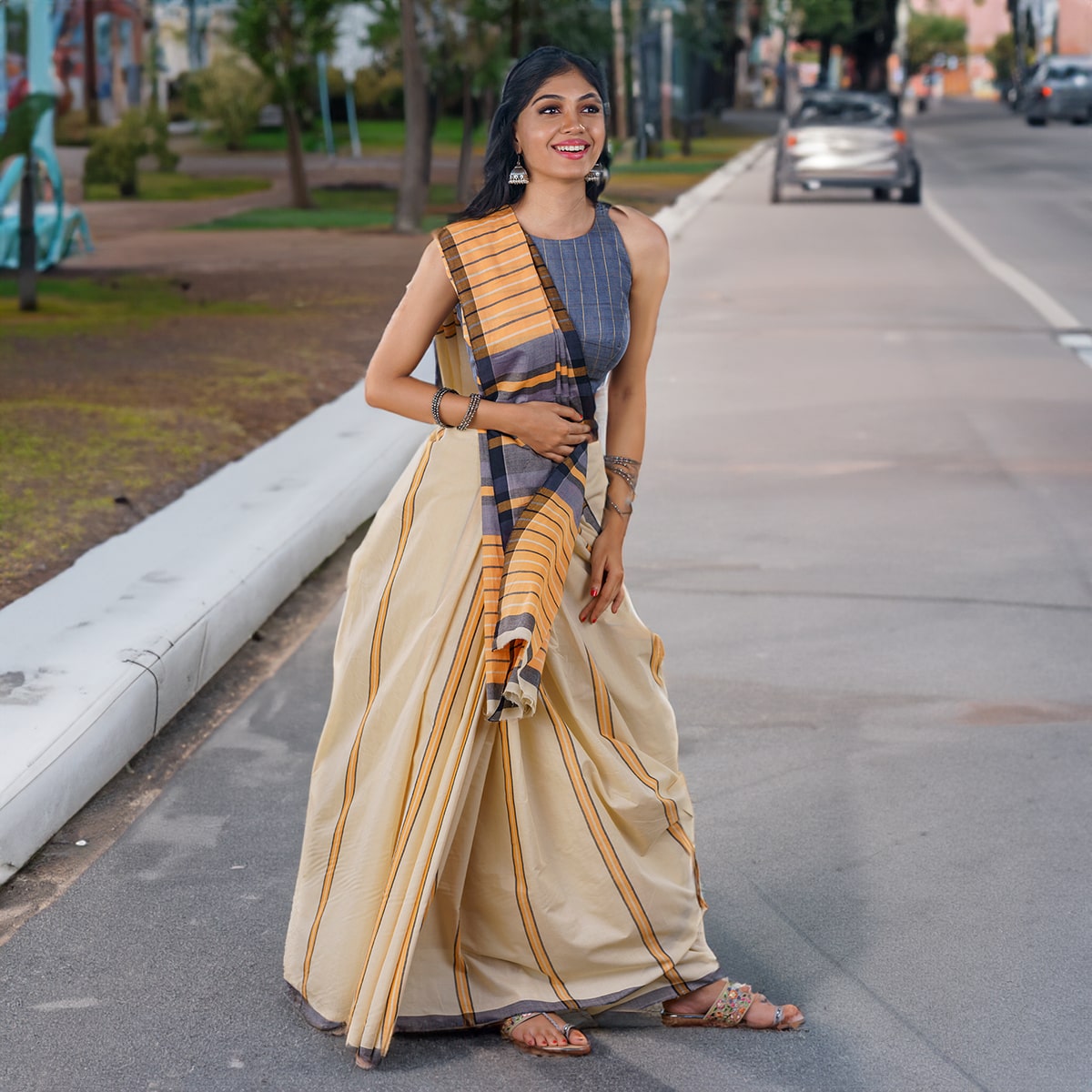
Ragam Saree
$3300
$3600
Story of Weaving: The handloom fabric is a type of fabric that is woven using hand operated looms. Two sets of interlacing yarns, the warp (length) and weft (width), are woven on a loom hand-operated by weavers. These looms do not use electricity. Human handling lends the fabrics a unique feel and renders the fabrics more value. The resultant fabric is softer, more durable and much more comfortable than machine-made fabrics. Handloom cotton is more breathable and thus feels lighter in summers and provides more insulation in winters. The dyeing process also becomes easier for handloom cotton as the colour penetration is substantially more. Hues are absorbed better thus look resplendent on handloom cotton. The art of hand weaving is labour intensive and takes a longer time. But, the beauty it adds to the fabric is priceless. Choosing handloom cotton supports the rich weaving heritage of India and lets the weavers carry on the precious art-form to the future generations as well.
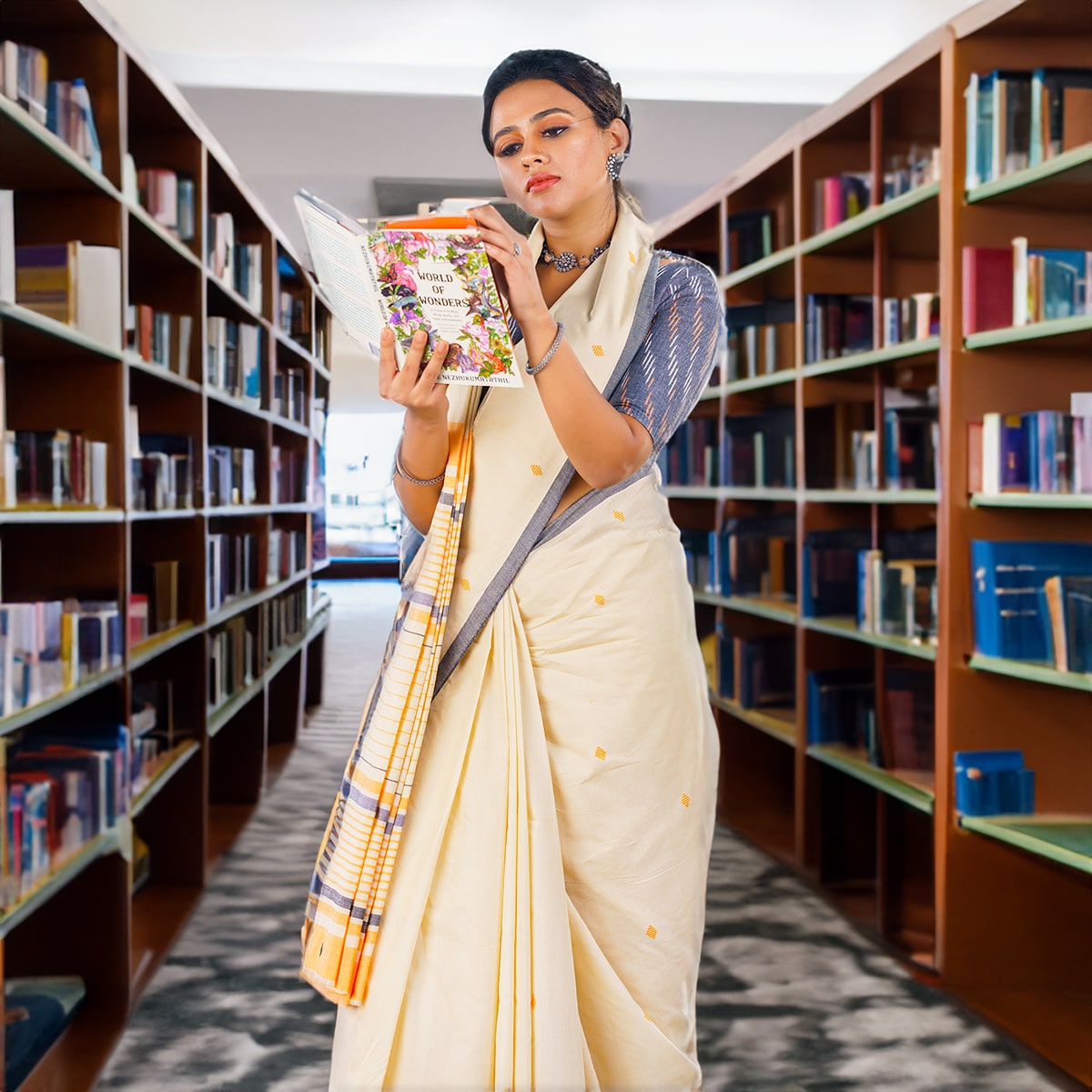
Sarada Saree
$3300
$3600
Story of Weaving: The handloom fabric is a type of fabric that is woven using hand operated looms. Two sets of interlacing yarns, the warp (length) and weft (width), are woven on a loom hand-operated by weavers. These looms do not use electricity. Human handling lends the fabrics a unique feel and renders the fabrics more value. The resultant fabric is softer, more durable and much more comfortable than machine-made fabrics. Handloom cotton is more breathable and thus feels lighter in summers and provides more insulation in winters. The dyeing process also becomes easier for handloom cotton as the colour penetration is substantially more. Hues are absorbed better thus look resplendent on handloom cotton. The art of hand weaving is labour intensive and takes a longer time. But, the beauty it adds to the fabric is priceless. Choosing handloom cotton supports the rich weaving heritage of India and lets the weavers carry on the precious art-form to the future generations as well.
